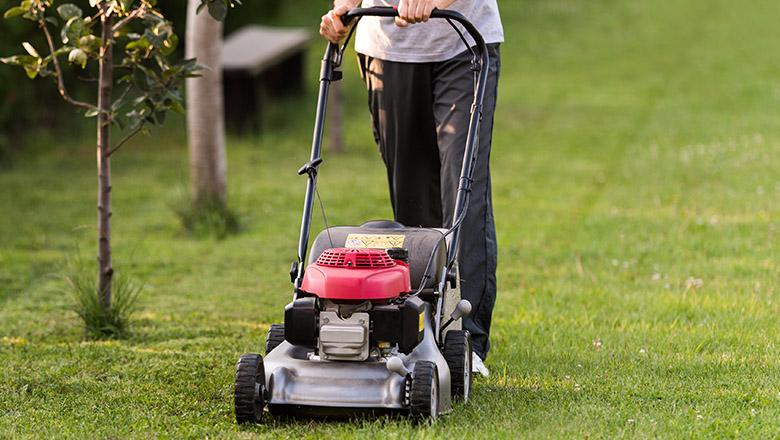Teaching your teen about money is one of those essential life lessons that will help set them up for adulthood.
But it can be difficult to know when and where to start, and how much financial wisdom you should be imparting without offloading an overwhelming amount of information and advice.
We’re here to help you with a few simple ways to introduce your teen to money – how to earn it, save it and be generally savvy about it.
Introducing your teen to everyday costs
One of the first steps you may wish to take when teaching your teenager about money is helping them to develop an understanding of just how much things cost. Up until now, they probably haven't considered why you look for discounted items at the grocery store or consider a Bunnings sausage sizzle a steal of a deal for Sunday lunch.
Food is a simple place to start when introducing your teen to the cost of living. Begin pointing out the cost of certain items when you’re at the supermarket, discuss why some types of food are more expensive than others, and share any tips you have picked up for saving money on meals. Your teen may not be super interested to start with, but once you begin explaining why you’re swapping out their favourite treats for something different, engagement is sure to spike.
Bills and taxes, on the other hand, are hard topics to get anyone interested in, let alone a teenager. A more effective way to introduce your child to the cost of accommodation, travel and budgeting could be to include them in planning your next family holiday. Ask them for assistance with researching accommodation that’s within a certain budget and ticks the criteria you’re looking for. You could also task them with finding family-friendly holiday activities, suggesting they propose their top 5, comparing costs and value for money. Getting them thinking about bang for buck and instilling this idea of conducting research before making a purchase will help them to develop sensible spending habits.

Helping your teen earn money
Your teen may be of an age where they’re starting to get pocket money or thinking about finding their first casual or part-time job. As such, you might be looking for ways to help your teen understand how money is earned.
How old does a teenager have to be to work?
The age your teen needs to be to start work differs depending on which state or territory in Australia you live in. In Queensland, the minimum age for employment is generally 13, though teens can start working in delivery roles like newspaper runs and mailbox drops for advertising materials from as early as 11.
Find out how old your teen needs to be to start work in your state or territory.
Ensure you’re across limitations on the hours your teen can legally work and help them to balance their job with schoolwork. Teens who have a casual or part-time job during high school may need assistance developing their time-management skills – something which will definitely come in handy when they move onto university studies and beyond.
How to save money as a teenager without a job
Your teen doesn’t need to secure official employment to start earning and saving money. You can introduce the idea of earning money and managing basic finances by supplying pocket money for chores completed around the house, like unpacking the dishwasher, washing the car or mowing the lawn. These are also small tasks your teen can carry out for neighbours and other family members in exchange for pocket money.
Gradually widen the net of people your teen interacts with when trading simple services for money (always vetting strangers beforehand). This will help to develop their communication skills and introduce them to the concept of managing stakeholder relationships on a very basic level as well.

Encouraging your teen to develop a savings mindset
Now that your teen has an awareness of how much things cost, and is perhaps earning their own money, it’s time to address spending and saving.
Talking about savings
It’s impossible to impress upon your teen the value of saving money without also addressing the importance of setting long-term goals. If your teen wants to buy a car, travel internationally, go to university or eventually own their own home, these are all long-term goals that require commitment to saving money.
It’s easy to feel overwhelmed by the sheer amount of expenses involved with being an adult. But if you introduce these to your teen gradually and ensure they develop a savings mindset from an early age, they can start building their finances bit by bit, so such goals don’t seem so far out of reach once they cross the border into adulthood.
Start simple with items your teenager perceives as valuable. Perhaps they want to save for a concert ticket or a new phone. For a teen, these things may be long-term goals, depending on how much they’re earning. Encourage them to put aside a set amount per week and draft a savings plan indicating how long it will take them to save the required amount of money.
Once they’ve successfully saved and purchased simple items such as these, start introducing the idea of longer-term financial goals such as buying a car or a house, and the timeframes it could take to save for such big-ticket items. They don’t have to start saving for a house at 16, but the earlier they’re aware of how long it can take to get together a deposit, the more informed they will be when prioritising finances and making decisions about money in early adulthood.
Can I open a bank account for my child?
It's no secret that we’re moving towards an increasingly cashless society, so one of your top priorities once your teen starts earning money will probably be setting them up with a bank account so they can securely save it.
In Australia, teenagers 14 years and over can usually open their own bank account and procure a debit card in their own name, with the consent of a parent or guardian. Teens 13 years and younger will need their parent or guardian’s assistance to open a bank account, with the parent or guardian typically having some level of control over the account. These policies and ages can alter slightly from bank to bank, however, so always be sure to ask.
Youth are unable to open a bank account in Australia without parental or legal guardian consent until they turn 18.

What is the best bank account for a teenager?
Most Australian banks offer youth products and accounts. Don’t be afraid to shop around – different banks have different policies and products for teens looking to manage their finances. Think about the level of financial control you feel your teen is ready for, and chat to them about how they’d like to save and spend their money.
When considering the best bank account for your teen, think about:
- their financial goals – if they have any or would like to set any
- how much and how frequently they are earning money
- what you predict their saving vs. spending habits will be
- the level of autonomy you believe they should have over their finances.
Considering these points and having an honest conversation with your teen covering these topics will help you to determine the best type of bank account together.
Canstar have a helpful youth banking comparison tool that may assist you and your teen in finding the right bank account.
Superannuation
Possibly the longest-term financial goal you could introduce to your teen is superannuation. You may decide to wait to have this discussion with your teen until they’re working enough hours to be eligible for superannuation contributions.
What age can you start superannuation in Australia?
In Australia, employers are required to pay super to teens under 18 years old if they work more than 30 hours in a week. Generally speaking, all adults 18 years and over are eligible for super, no matter how many hours they work.
If your teen is eligible for superannuation, their employer will give them a standard choice form to fill out, where they’ll be able to select whether they want to go with the employer’s default super or elect their own fund. Having a discussion with your teen to ensure they understand superannuation is always a good idea. Your teen may decide they want to go with a fund where they have more autonomy over where and how their super is invested.
Looking for an easy guide to help you explain super? The ATO has a Your superannuation basics page that may come in handy when tackling this complex topic with your teen.
Retirement can seem a very long way off for a teen who has just started their first job. But it’s important for your child to go into the workforce with a clear understanding of how their super habits and decisions now can greatly impact their quality of life during retirement.

What is the best super fund for teenagers?
It’s worth noting that some super funds may have restrictions on under 18s opening accounts, so always be sure to check the terms and conditions, and look out for super funds who offer specific products for young adults.
When looking for the best super fund for your teen, you should research:
- performance history and predicted trajectory
- fees
- insurance
- investment options.
Moneymag.com have a useful article on the Best-value super funds for young people.
Teaching your teen about credit
As your teen starts to earn and save money, they’ll be exposed to various buy now, pay later services such as Afterpay, Zip Pay and Klarna. This presents a good opportunity to begin teaching your teen about credit – and the dangers of falling into debt that it isn’t within their means to pay back.
Be sure to chat to your teen about how their spending habits now can affect their credit history down the road, including their ability to secure personal loans for things like a car or a house.
An effective way to teach your teenager about credit in a safe environment is by lending them money to purchase something they want upfront. Sit down with them to make an agreement on how they will pay you back, outlining the terms and conditions of the ‘loan’ and working out the weekly repayments they can make to you, based on their income and other expenses, with a set due date for the completion of the repayments. Holding your teen accountable for their spending in this way will set them up with strong skills and positive habits for a stable financial future.
While employment, odd jobs and chores can help teach your teen about money, volunteer work can also teach them essential communication, organisation and leaderships skills. Read our article Volunteer ideas for high school students to find out more.





